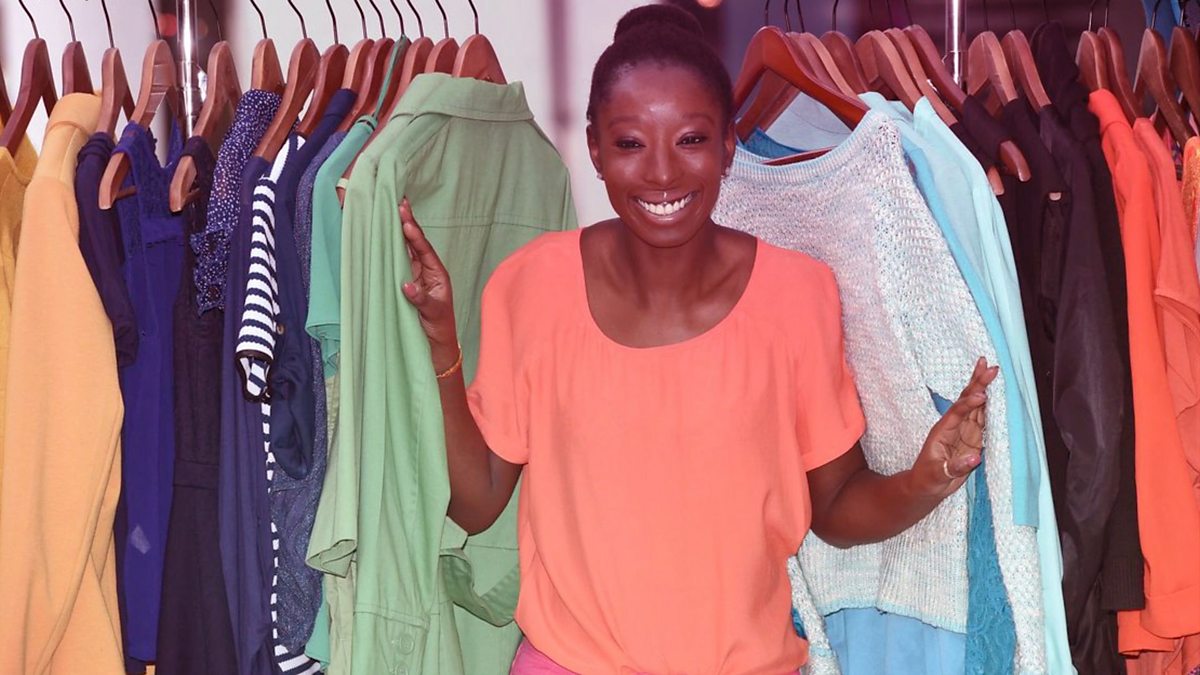LORE:Hi, I’m Lore and I’m 12 years old. In the UK, special honours such as MBE, OBE and CBE are given to recognise people’s amazing achievements and service to the country. MBE stands for Member of the Order of the British Empire. While an MBE is a great honour, its connections with the British Empire means not everyone feels comfortable accepting. For hundreds of years, Britain built an empire, taking over and ruling many places all over the world, including large areas of Australia, America, New Zealand, Asia and Africa. I’m on my way to meet Eunice who, like me, is a second generation Nigerian whose family settled in Scotland.
EUNICE:Hi! Come in.
LORE:What was it like growing up for you?
EUNICE:My family ended up in Scotland because my dad became part of the British Navy. After my dad stopped working in the Navy, my mum decided to stay in Scotland, so she moved to Wester Hailes. And Wester Hailes is kind of like a typical working class council estate. Where I grew up there wasn’t anybody that looked like me at all. And in a lot of ways, I was probably the first black person that a lot of people had met. So it was a bit difficult because I did kind of get picked on a lot because of the colour of my skin. But I was really lucky because my mum was amazing and she believed in me and she taught me that it’s so important to love yourself. So things started to change around about the age of 15 for me. I was scouted by a model agent. I was coming from a background where I had had really bad experiences because of the colour of my skin. Actually, people thought that I looked great, or I looked amazing, which to me was so unusual and so strange, and it built my confidence so much.
LORE:What opportunities did modeling give you?
EUNICE:It was a means for me to go and see completely different places and people. This one is a magazine in Scotland, and it was the first ever time that they had a black girl on the cover.
LORE:
Wow!
EUNICE:In 2017, I was awarded an MBE for my contributions to arts, broadcasting and charity work. When I first found out about the MBE, I was so overwhelmed. I could not believe it. And then I was kind of confused because it didn’t suit what I stand for. I don’t agree with the Empire and some of the things that they were involved in, such as the slave trade. So for me, I wasn’t sure if I wanted to be part of that. I went to my family and I asked my mum and she talked to me about the sacrifices that her generation made. She talked to me about the sacrifices of generations before her. And she talked to me about legacy. But in the end, what I decided to do was to accept the MBE, but to donate it to the National Museum of Scotland. And I decided to donate it there so that everybody, school kids, adults, anybody that went to the museum could see it. And also, most importantly, because I wanted people to discuss Empire and to discuss how much the past affects the future and what we can all do to move forward in a way that helps everybody and is fair to everybody.
LORE:Speaking with Eunice has really made me appreciate all the work she has done to help others and how her career has contributed togreater diversity by seeing black people in TV, film and fashion. It really makes me feel proud to see other Nigerians do such amazing work, and it makes me feel even more proud of my Nigerian roots. I hope that all of Eunice’s hard work helps young people like me want to do better as well, but also not to be held back because of the colour of our skin.

